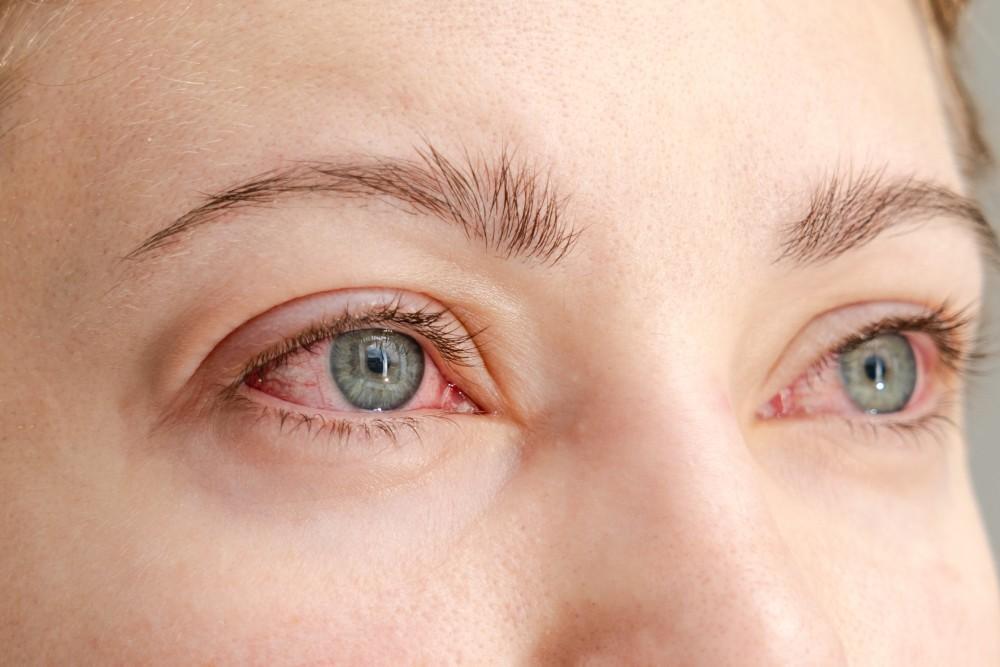
Ask These Questions At Your Next Eye Appointment

If you’re getting ready for your next eye appointment and have a few questions, you’re not alone. With over 20 years of experience, Nicanor Lacsina, O.D., Yelena Pinkhasova, O.D., and the Bainbridge Eye Care team have heard nearly every eye-related question possible — and we’re more than happy about that.
Why? Asking questions is an important part of your health care — It puts you in the driver’s seat and in control of gaining specific knowledge about your health.
Not sure where to start? Here are eight questions to ask at your next eye appointment.
1. What is my current prescription?
It’s normal for your prescription to change over time, and it’s equally important to know what those changes are. Make sure you're aware of any changes in your vision and whether you need updated glasses or contact lenses.
If you do need glasses, our team offers a variety of lenses (including lenses made from durable polycarbonate and Trivex® materials) as well as various coating options and high-end frames here in our on-site lab.
If you need contacts, our team offers many different brands and types of contact lenses. Contacts can help correct refractive errors and presbyopia. We also offer specialty lenses, gas-permeable scleral lenses, hydrating lenses for dry eyes, and ortho-k lenses to help improve your eyesight.
Want both? Not a problem! Many of our patients choose to have both eyeglasses and contact lenses.
2. Am I at risk for any eye conditions?
During your exam, Dr. Lacsina or Dr. Pinkhasova reviews your health history and any current symptoms you’re experiencing. Don’t be afraid to ask if you have any warning signs of eye conditions like glaucoma, cataracts, or macular degeneration.
Knowledge is power, and learning your specific risk factors can help you make lifestyle adjustments (if needed) to reduce any modifiable risk factors.
3. How can I protect my eyes from digital eye strain?
If you spend a lot of time in front of screens or under artificial lighting, ask for tips on reducing digital eye strain, especially if you already have symptoms like dry eye, headaches, or tired eyes.
4. Which eye products are best for me?
Whether you’re dealing with red eyes, dry eyes, or even eye allergies, you likely want relief from these conditions.
You may wonder if over-the-counter (OTC) artificial tears, vitamins, supplements, or other products can help maintain your eye health. In some cases, you may also benefit from prescription eye products, including prescription eye drops, allergy medications, etc.
Your Bainbridge Eye Care provider can help you sort through your options — both OTC options and prescription — so you can get the relief you need.
5. Can you explain my test results?
If you don’t understand one of your test results, don’t hold back. We’re more than happy to explain what the test is, why it is needed, and what your results mean.
6. How often should I schedule eye exams?
There isn’t just one set recommended schedule for eye exams for adults and children. Rather, the frequency of your eye exams (or your child’s exams) is based on age, risk factors, and any existing eye conditions.
Our team recommends the right frequency for you.
7. What treatments do you suggest for me?
We discuss potential treatments for any existing eye conditions or issues identified during your appointment. Whether it's medication, new glasses, or even surgical options, understanding your treatment options can help you feel confident in your treatment plan.
8. What lifestyle changes should I consider?
Lifestyle changes such as regular exercise, wearing protective eyewear, wearing sunglasses, and dietary modifications — particularly adding vitamin C, A, and E-rich foods into your diet — can help protect your vision and eyes in the long run.
Our team can recommend specific lifestyle modifications based on your unique eye needs.
Preparing for your appointment
Before your appointment, gather any relevant medical history and a list of your current medications and supplements. You can use this same piece of paper to jot down your questions. This way you don’t have to worry about trying to remember all your questions. You can also jot notes on your paper to keep your answers all in one place — win-win!
The bottom line: Don't be afraid to ask questions during your eye appointment. Eye health is important, and being proactive can help you maintain good vision for years.
To schedule your eye exam at our office in the Norwood neighborhood of the Bronx, click here for our online booking tool today. You can also reach us at 718-306-9127.
You Might Also Enjoy...


5 Signs You Need a New Corrective Lens Prescription

Eye-Friendly Habits You Can Start Today

Vision Changes with Age: What’s Normal, and What’s Cause for Concern?

Understanding How Diabetes Can Diminish Your Ocular Health and Impair Your Vision

